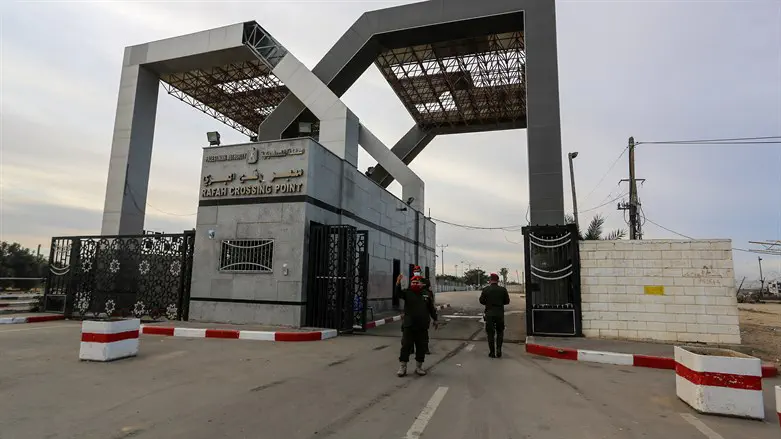
The Rafah crossing between Egypt and Gaza is not expected to open on Friday for a convoy of humanitarian aid to get to Gaza, multiple sources told CNN on Thursday, despite expectations voiced by US President Joe Biden and others that it would be open.
“I would not put money on those trucks going through tomorrow,” one source familiar with the discussions told CNN.
Road repairs need to be done on the Egyptian side of the buffer zone and there are a lot of other details to make sure the aid is sustained, not a one off, the source explained.
It’s “a really volatile situation,” the person said. “These people have been waiting for food, for medicine and for water. If they’re told 20 trucks are coming in and we don’t know when is next it’s going to create a really dangerous situation. If I were in that situation, if I didn’t think there would be more trucks, I’d do everything I could to get what’s inside.”
US officials now expect that the first convoy of trucks carrying humanitarian aid into Gaza from Egypt will cross the border this weekend, possibly by Saturday.
Biden told reporters on Wednesday that Egyptian President Abdel Fattah Al-Sisi had agreed to open the Rafah crossing to allow about 20 trucks carrying humanitarian aid to Gaza.
The White House said that Biden and Sisi agreed to work closely on encouraging an "urgent and robust" response to a humanitarian appeal by the United Nations over the conflict between Israel and Hamas.
According to reports from earlier this week, the Rafah border crossing between Egypt and Gaza was to have opened for the entry of foreigners and dual nationals into Egypt as well as the delivery of humanitarian aid into Gaza.
US State Department spokesperson Matt Miller said at a briefing Thursday afternoon that former Ambassador David Satterfield, the US special envoy for Middle East humanitarian assistance, was “on the ground negotiating with the Israelis” and working on the details “even as we speak.”
“With respect to trucks, I don't want to speak to what the exact agreement will look like because that is a matter that continues to be negotiated, that Ambassador Satterfield is on the ground negotiating,” Miller said.
Egyptian authorities have kept the Rafah crossing virtually sealed since a terrorist attack in the Sinai Peninsula in October 2014, though they have temporarily reopened the crossing several times since that attack, mostly for the passage of humanitarian cases.
Egypt has kept the Rafah crossing closed as it blames Hamas terrorists for providing the weapons for the lethal 2014 attack, which killed 30 soldiers, through one of its smuggling tunnels under the border to Sinai. Hamas denies the allegations.
In 2019, Egypt decided that the Rafah crossing will be open in one direction only, for people wishing to cross from Egypt into Gaza. The decision was made after the Palestinian Authority withdrew its staff from the crossing due to clashes with Hamas.

